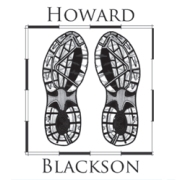I got a blog, I’m an urban designer, and I got opinions… so let’s do this!
This epic pandemic moment will resonate in two scales. First, at the global scale:
- Easily identified our global economy as being very fragile and forgetting the trickling down part…
- Every nation now has the experience to work collectively to… limit Greenhouse Gas emissions. We can all stop driving and we will survive. When our Climate Change Pearl Harbor or asteroid moment occurs, we’ll have practice in how to collectively work on surviving it. This is the hope we were looking for.
- There are always people on the wrong side of history. The anti-vaccine groups, hate groups, and libertarians are not helping us collectively survive and thrive as citizens.
- Today’s cities exist because of jobs. With the local economies collapsing, big cities will continue to provide the most available jobs to any region, and will continue to grow as long-standing local economic jobs in small towns will be late to the economic recovery cycle. We must prepare for continued big city housing crisis.
Second, at the local scale:
- We are sheltering-in-our neighborhoods (place). We are seeing our local streets, right-of-ways, and parks as the health, welfare, and safety valves they actually are. Mindful of San Francisco’s parks post-1906 earthquake and fire, where people lived until they were able to rebuilt their homes.

2. Pre-Covid trends will be accelerated:
-
- End of Class A office park pods (retrofitted w/urban amenities);
- More outdoor dining/entertainment (pop up container parks)
- More online shopping & music concerts/events;
- More bike/walkable streets;
- More parks for our health, welfare, and safety (See point #1).
3. (Stolen from Bill Fulton) New Office Space as a place more specifically for meetings, sales, showroom, model building, virtual touring (gaming), lectures, parties, and fun and less as a dedicated production work space, allowing for more of that to happen at home. This more mixed-use flexible workspace will help retention of parents who are raising young children, and people who love working from home. It’s a retention program.
4. The neighborhood is the Rosetta stone of understanding how to build cities, which are very complex. And, at this moment, we are collectively learning more and more about our neighborhoods because we are driving less and walking more which is a good thing.
Plus, we’re learning how to respond to a global scale crisis, which is another good thing when the comet (climate change) hits.
More later.


